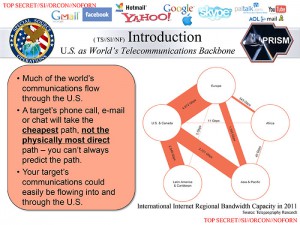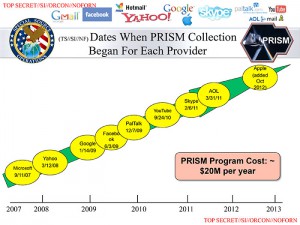 In reaction to the news about large scale NSA surveillance, the new NSA data storage facility currently under construction in Utah has been mentioned frequently. Along with the factoid that this facility will supposedly be able to store a yottabyte of data.
In reaction to the news about large scale NSA surveillance, the new NSA data storage facility currently under construction in Utah has been mentioned frequently. Along with the factoid that this facility will supposedly be able to store a yottabyte of data.
Yottabyte? That is a lot of data. And when I say a lot, I mean A LOT. An incredibly large amount of data. And in this case, I mean “incredible” in the literal sense of the word, as in not credible. Despite the fact that this tidbit even appears on Wikipedia.
A yottabyte is a trillion trillion bytes. A trillion terabytes, in other words.
The largest commercially available hard drives currently hold about 4 terabytes of data. To store a yottabyte, you would need a quarter trillion, or 250 billion 4TB hard drives. That would amount to about 35 hard drives for each living person on the planet.
A 4 TB hard drive consumes about 3-6 W of power. Say, 4 W on average. 250 billion drives would therefore consume a trillion watts of power. Which is roughly the peak electrical power generation capacity of the entire United States. We know that the Utah facility will consume a lot of power, but the figure I’ve seen mentioned in one article was a much more modest 75 megawatts. Which is about one ten thousandths the amount of power I just calculated.
Then there is the price. The retail price of a 4TB drive is a tad under $200 these days. Presumably, they would cost a lot less if purchased in bulk; say, $100 per drive, including power supplies, interface circuits, whatever. So 250 billion 4TB hard drives would only cost 25 trillion US dollars.
That is, more than one and a half times the United States GDP.
However important it is for the United Stasi of America to keep a watchful eye over every citizen of the world, I don’t think a price tag like this is feasible. Indeed, the cost of the facility is a lot less, reportedly around 1.5 to 2 billion dollars. Let me round it up to 2.5 billion; after all, government projects are rarely completed within budget. And let me assume that all that money is spent on data storage. Well… that’s still not a yottabyte. It’s one ten thousandths of a yottabyte. Or 0.1 zettabytes. Or 100 exabytes.
Still a staggering amount, but much more modest. After all, large service providers like Google are already storing hundreds of petabytes, even exabytes of data. And the entire world may already have collected a few zettabytes.
But not yottabytes. Never mind the NSA; the world as a whole is still a long way away from a yottabyte. Probably a couple of decades, even assuming continuing exponential growth in global data storage capacity.
In any case, a yottabyte is an insane amount of data, even for an institution like the NSA. It is sufficient to store about eight years worth of broadcast quality video for each individual living on the planet. Or, if you are content with lower video quality, a complete visual record of the entire life of every living person on the planet could easily fit in a yottabyte.
Besides… is it really believable that the NSA sits on top of a technology that increases the efficiency of data storage by 4-5 orders of magnitude, a factor of 10,000 or more? There are some really smart people working for the NSA, to be sure, but they are not space aliens. Exotic storage technologies may be in the works in storage technology labs, but I suspect that when they become practical and usable, we will first see them in our next generation gadgets, not secret US government data centers.
So no, the NSA is not going to store a yottabyte of data, breathless news reports and the hype notwithstanding. Not even a zettabyte. A few exabytes, maybe.
Which is still a lot. Far too much, in fact, for my comfort.

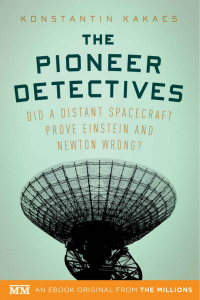

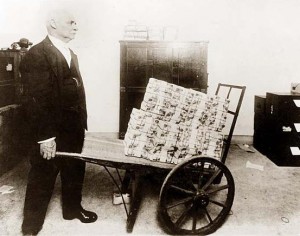






 OK, so gay-curing is officially off the table. Exodus International, the Christian ministry that was dedicated to “curing” homosexuals is shutting its doors. (Whether or not it will be resurrected under some other name, now that’s another question.)
OK, so gay-curing is officially off the table. Exodus International, the Christian ministry that was dedicated to “curing” homosexuals is shutting its doors. (Whether or not it will be resurrected under some other name, now that’s another question.)


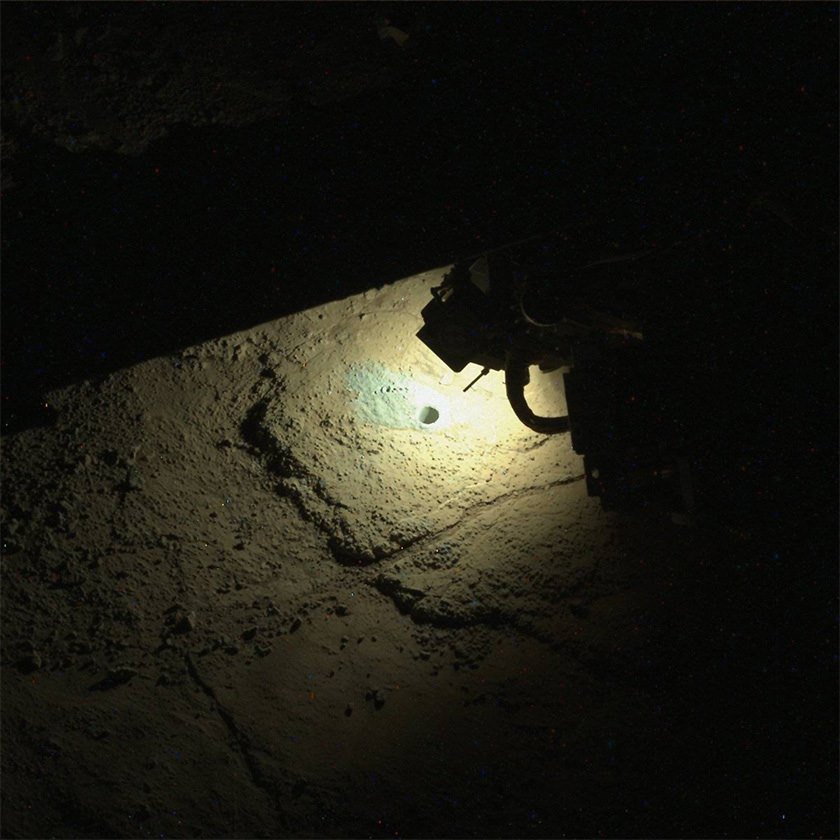

 Today I realized that in the past month, my blog has once again become what blogs were meant to be originally: a write-only medium that nobody reads.
Today I realized that in the past month, my blog has once again become what blogs were meant to be originally: a write-only medium that nobody reads.
